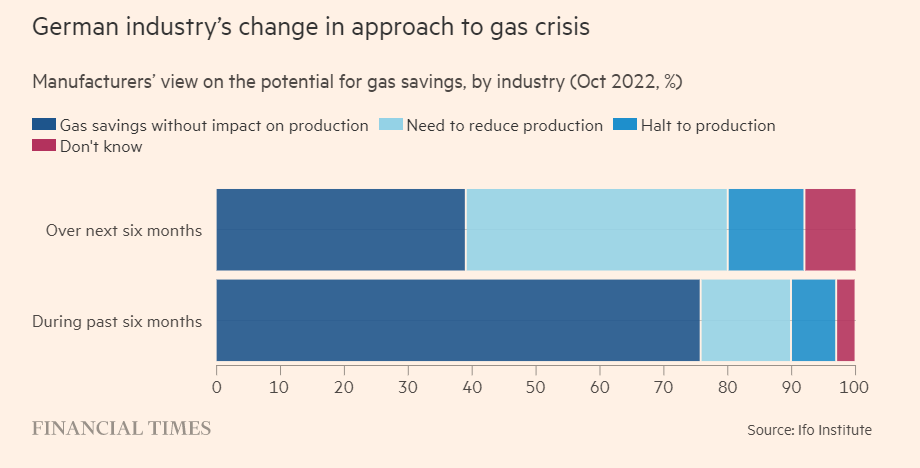German chemical giant BASF will downsize in Europe “as quickly as possible, and also permanently”
Wind and solar advocates in Minnesota often claim that the buildout of these energy sources will create quality jobs and strengthen the state’s economy, but the ongoing energy crisis in Germany, a country wind and solar groups used to champion, shows the exact opposite will happen.
A recent article from the Financial Times highlights the economic devastation resulting from decades of misguided German energy policy. The German Energiewende, or “energy transition,” resulted in shuttering reliable coal and nuclear plants and increased Deutcheland’s dependency on wind turbines, solar panels, and (Russian) natural gas.
The *entirely foreseeable* end results of these policies have been skyrocketing prices for natural gas and electricity that are crippling the German economy, which is highly dependent upon energy-intensive industries like manufacturing automobiles and chemicals.
The Financial Times notes:
BASF [the world’s largest chemical supplier] first responded to the soaring price of [natural] gas by shutting down its ammonia plant and reducing the run rate of its acetylene facility, hobbling production of two chemical building blocks used to make a host of different products that are vital to modern industrial value chains.
“High natural gas prices have created a situation where importing ammonia from overseas was cheaper than manufacturing it ourselves,” says Uwe Liebelt, head of BASF’s European sites.
By October, the company had gone much further, concluding that higher energy costs had so badly undermined Europe’s competitiveness that it would have to transform its entire business.
Chief executive Martin Brudermüller announced that BASF would downsize in Europe “as quickly as possible, and also permanently”. Most of the cuts are expected to be made at the Ludwigshafen site.
BASF is not the only company reeling from the European energy crisis. Many factories are switching their operations to oil, dimming the lights, or shutting down production altogether. Some companies are considering leaving Germany for countries where energy is more affordable.

The Times continues:
Government statistics released last month said production in energy-intensive industries, which account for 23 percent of all industrial jobs in Germany, had declined by 10 percent since the start of the year. Sectors like metals, glass, ceramics, paper, and textiles have taken the biggest hit. “That means there are 1.5mn workers in Germany whose industries are currently under pressure,” says Clemens Fuest, head of the Ifo Institute.
Germany’s glass and ceramics manufacturers may be struggling — but they are relatively small. Not so the chemical industry, which employs more than 450,000 people in Germany. “If it were to halve in size that would have a direct impact on the country’s prosperity,” says Henrik Ahlers, country manager for EY Germany.
Rising energy costs threaten to deindustrialize Germany, as high costs could cause production to shift away from Germany to other countries with lower energy costs. The Financial Times stated a poll over the summer by Germany’s main business lobby found that nearly 25 percent of small and medium-sized businesses were considering leaving the country, with energy costs triggering the shift.
Minnesota should learn from Germany’s mistakes instead of repeating them. Our economy is also energy intensive, with manufacturing, mining, and agriculture comprising significant shares of our gross domestic product and energy consumption.
If we make energy scarcer or more expensive here in pursuit of misguided energy policies that will almost certainly be proposed in the next two legislative sessions, then we risk losing these industries that provide high-paying, family-supporting jobs to other states.